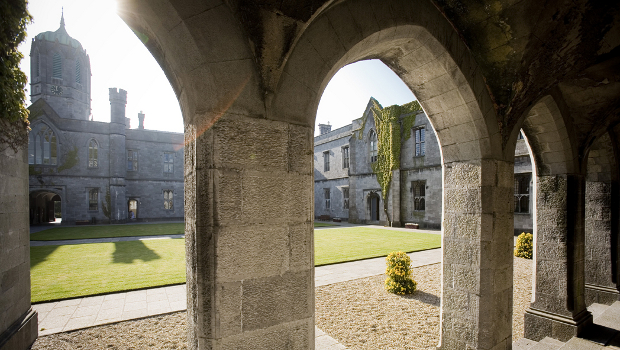
NUI Galway launches €7.45m robotic stem cell therapy project
NUI Galway’s Regenerative Medicine Institute has launched a €7.45 million project to develop ground-breaking platforms for the production of advanced cellular therapeutics for osteoarthritis treatment.
Funded by the EU Horizon 2020 programme, the AutoCrat project will strive to develop a treatment for osteoarthritis and demand for more cell-based treatments by transforming how stem cells are manufactured.
Led jointly by NUI Galway and Fraunhofer Institute of Production Technology Aachen, the project hopes to generate a deeper understanding of stem cells and their therapeutic uses and develop advanced engineering and robotic systems. Further, the need to develop industrially relevant, cost effective and fully automated manufacturing systems is at the project’s core.
Cellular therapies are currently being tested for a range of conditions, including degenerative diseases, immune and inflammatory disorders and cancer. The type of cell used depends on the treatment. Stem cells, tissue-derived adult cells or cells of the immune system may be used.
Still, as clinical trials progress and more treatments have become available the use of living cells remains a challenge both in in terms of production and manufacturing protocols. Live cells require highly skilled teams of technicians operating in a clean-room environment. Current manufacturing protocols are relatively inefficient and limited in scale, while cost-efficient and high throughput manufacturing is a major obstacle.
The project hopes to enable the production of cell-based therapeutics on an industrial scale. To accelerate the development of the cell therapy industry and to make treatments more accessible, AutoCrat aims to be more controlled and lower in cost than existing technology.
AutoCrat follows the recently completed AutoStem project, which was another collaboration between the two institutes. AutoStem led to the development of an automated, advanced robotic platform for industrial-scale manufacture of cell products. This will be further developed to include enhanced technologies for a wider array of cell types and products. AutoCrat also will include automated testing protocols to ensure process monitoring and quality control are managed within the platform.
AutoCrat will be led by Mary Murphy, professor of regenerative medicine and a principal investigator at the Regenerative Medicine Institute (REMEDI) at NUI Galway. Prof Murphy said: “This is an exciting interdisciplinary project that will develop new cell therapies for arthritis and provide the platform for automated, robot-enabled manufacturing of the cell products to ensure that patients will benefit in the foreseeable future.”
Frank Barry, professor of cellular therapy at REMEDI, considers the adoption of best in class manufacturing protocols to be the most serious obstacle facing the cell therapy industry. “We know from our experience in managing cell therapy clinical trials that the manufacturing side is inefficient and vulnerable with an unacceptably high cost of goods. The only way the field can progress is through the widespread adoption of highly automated production and testing protocols. AutoCrat addresses these gaps and will be a game-changing innovation.”
TechCentral Reporters







Subscribers 0
Fans 0
Followers 0
Followers